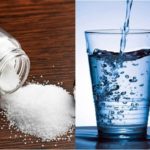The human taste palate is often easily enticed by sweet treats, and honey is one such product that is beloved by the majority. Honey has permeated daily life, with its health benefits attracting significant public interest. However, the healing powers of honey for the body need to be viewed objectively, and there are some important facts people should know.
What are the nutritional benefits of honey?
In fact, honey is a food that contains a variety of nutrients, mainly sugars such as fructose, which sweetens dishes. Additionally, honey provides some trace elements and minerals, although in small amounts. However, it shouldn’t be overly praised as it is just a basic food.

Honey is a food that contains a variety of sugars, primarily fructose, which lends its sweetness to dishes.
The greatest benefit of honey relates to its hydrating properties. Drinking honey water can improve metabolism, maintain stable body temperature, and prevent constipation and other issues.
Honey is also an energy source due to its high carbohydrate content. Each gram of carbohydrate provides approximately 4 kilocalories, forming the basis for daily activities.
The delicious flavor of honey can also enhance one’s mood, but its healing powers shouldn’t be overstated, such as claiming it can cure cancer, lower blood pressure, or prevent aging. Honey is just a food and cannot replace medicine. Often, exaggerated claims about honey’s healing abilities lack scientific basis.
Drinking honey water in the morning is perfectly safe. If you have a strong stomach, you can drink honey water on an empty stomach. Otherwise, if your stomach is sensitive, it’s best to drink it after a meal. The timing of drinking honey water is not crucial; it can be consumed in the morning or evening, but adjustments should be made based on personal preferences and health conditions.
Honey is a popular food, but it should be consumed in moderation to avoid these three common misconceptions:
Right Quantity
Honey is sweet and delicious, but its main characteristic is its high sugar content. Excessive sugar intake can lead to weight gain and increase the risk of obesity, high blood pressure, and diabetes. Therefore, honey consumption should be limited, typically not exceeding 20 grams per day to reduce these risks.

Honey is delightful, but its key trait is its high sugar content.
Not Suitable for Everyone
Those allergic to honey should refrain from consuming it to avoid allergic reactions. Diabetics or individuals with high blood sugar levels should also limit their honey intake according to their health conditions.
Not Recommended for Infants Under One Year Old
Infants under one year of age should not consume honey due to the risk of botulism. When preparing honey water, pay attention to the temperature. Water that is too hot can irritate the esophagus and stomach lining, while water that is too cold can cause diarrhea. Honey water should be consumed at temperatures not exceeding 65°C, with 40°C being the most suitable.
While honey is believed to offer health benefits, it doesn’t possess miraculous healing powers. Maintaining a healthy and balanced diet is crucial to minimizing health risks.





































